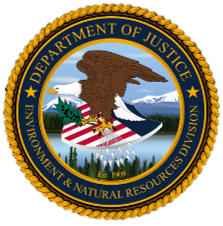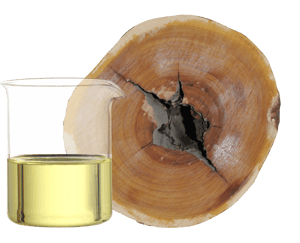What is the US Lacey Act?
The Lacey Act is the United States' oldest wildlife protection statute for combating illegal trafficking of wildlife, fish, and plants.
 As of October 1, 2021 a new phase (Phase VI) of the Lacey Act is now enforced requiring an import declaration on 27 new tariff lines including Sandalwood Essential Oil (using new HS Code 3301.29.5139).
As of October 1, 2021 a new phase (Phase VI) of the Lacey Act is now enforced requiring an import declaration on 27 new tariff lines including Sandalwood Essential Oil (using new HS Code 3301.29.5139).
Any company now importing Sandalwood Oil into the United States is held liable for observing all laws across the full supply chain of Sandalwood – from harvesting of the tree until it reaches your facility – whether it be a local US law, or any foreign law.
What are the implications?
The US Government (USDA APHIS) is now closely inspecting essential oil imports from October 1, 2021 for any breaches of the US Lacey Act. Under the Act, penalties are significant.
Watch what happened when the Department of Justice prosecuted Lumber Liquidators for trading in illegal timber for flooring.
US Lacey Act Penalties:
Civil - from $250 for no declaration, up to $10,000 for falsification of documentation.
Criminal – knowingly violating a declaration or labeling
- 5 years in prison and a fine of $250,000, or twice the gross gain
- Corporation – 5 years probation and $500,000; or twice the gross gain; restitution and forfeitures may also be imposed
Source: USDA APHIS website, August 2021
The Act expects those dealing with Sandalwood (and other restricted goods under the Act) to uphold a "Duty of Care".
DUE CARE - Common-Sense Red Flags
The Department of Justice suggests an individual exercising "Due Care" would consider the following as examples of "Red Flags" for potential breaches of the Lacey Act.
- Goods significantly below going market rate
- Cash only or a lower price for goods without paperwork
- Paperwork invalid or otherwise suspect
- Unusual sales methods or practices
- Transactions fit the description of illegal transactions discussed in trade/industry publications
- The inability of suppliers to provide rational answers to routine questions
Source: Lacey Act Amendments of 2008, Exercising Due Care To Ensure Compliance. Thomas W. Swegle. Law and Policy Section, Environment and Natural Resources Division, U.S. Department of Justice. 2018.
Why is this happening?
Sandalwood is one of the most prized – and expensive – essential oils. To bring a Sandalwood tree to maturity requires a minimum 20 years and typically much longer to obtain the highest quality oil. The demand for this luxury oil has resulted in extensive illegal harvesting and deforestation of Sandalwood trees. These illegal activities have occurred in native Sandalwood growing regions, including India, Indonesia, and New Caledonia.
To bring a Sandalwood tree to maturity requires a minimum 20 years and typically much longer to obtain the highest quality oil. The demand for this luxury oil has resulted in extensive illegal harvesting and deforestation of Sandalwood trees. These illegal activities have occurred in native Sandalwood growing regions, including India, Indonesia, and New Caledonia.
Even in Australia, which now supplies over 80% of the world's legal sandalwood, criminals – including organized crime syndicates and motorcycle gangs – have been apprehended for illegally harvesting trees and processing in underworld facilities.
Some syndicates were found to ship Australian Sandalwood to South East Asia for processing and subsequent oil export sales. As recently as December 2020, three persons were found guilty in Australian courts, and imprisoned for more than two years, for illegally exporting over 208,000kg of Sandalwood logs.
These are the types of illegal activities which the US Lacey Act is working to prevent.
Down Under can eliminate your Lacey Act risk for Sandalwood Oil
We are experts on Australian-grown plants and oils, with operations in the United States for over 20 years.
In Australia, we grow, produce, and export our range of traceable and sustainable native Australian essential oils and botanicals, including Sandalwood, globally.
To learn more about us and what makes us your ideal supply partner for fully traceable Sandalwood Oil in the United States, watch this short COMPANY INTRODUCTION VIDEO.
We offer the two major types of Sandalwood Oil:
.png?width=260&name=Manuka%20August%20(1).png) Australian Sandalwood (Santalum spicatum / Fusanus spicatus) – Every batch of our Australian Sandalwood Oil is produced from Sandalwood logs obtained under a 100% traceable wood supply contract with the Western Australian Government. Conventional and USDA NOP grade oil available.
Australian Sandalwood (Santalum spicatum / Fusanus spicatus) – Every batch of our Australian Sandalwood Oil is produced from Sandalwood logs obtained under a 100% traceable wood supply contract with the Western Australian Government. Conventional and USDA NOP grade oil available.- Sandalwood Album (Santalum album) – Every batch of our Sandalwood Album Oil is produced from plantation-grown trees in Australia. This oil is 100% traceable to each Santalum album tree harvested on the plantation.
We have long-standing and deep relationships with our Australian Sandalwood oil growers; we know their plantations, QA processes, and legislative requirements throughout Australia.
Down Under Enterprises (Australia) oversees and confirms the authenticity of each batch of Sandalwood Oil in Australia, including our own independent testing. We then manage and supervise every aspect of the direct import of our Sandalwood Oils to our US company, Down Under Enterprises, Inc. These shipments are delivered directly to our warehouse in Ohio, from which we supply our North American customers.
Down Under Enterprises is the Exporter of Lacey Act Compliant Sandalwood Oil from Australia.
We are the Importer of Australian Sandalwood Oil into the United States via our US warehouse.
With this supply chain in place, we can confidently supply your Sandalwood Oil requirements and eliminate your risk.
ACT NOW
Phase IV of the Lacey Act is now in effect.
If you are currently importing Sandalwood Oil, and if any of the RED FLAGS mentioned above give you cause to question your current supplier of Sandalwood Oil, or if you have further questions about the Lacey Act, complete the adjacent form and we will call you right back.
We want to help eliminate your risk of contravening the US Lacey Act.
